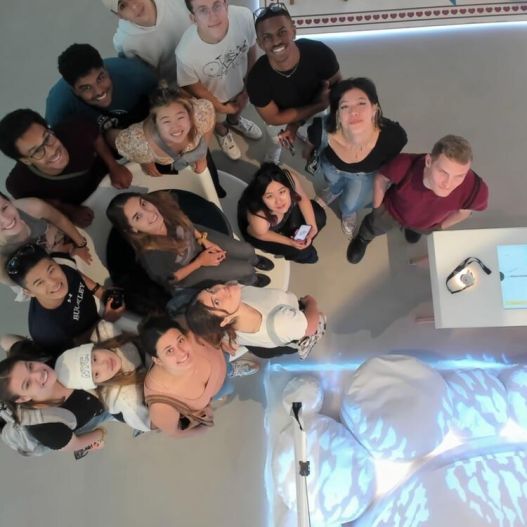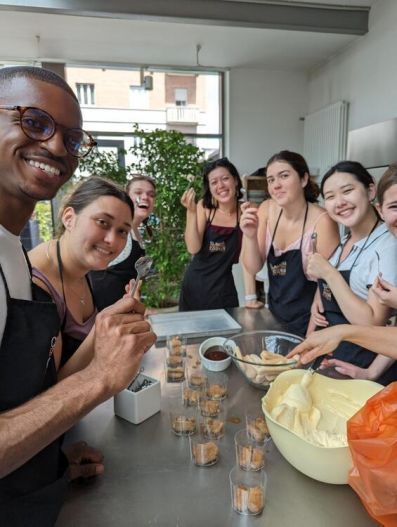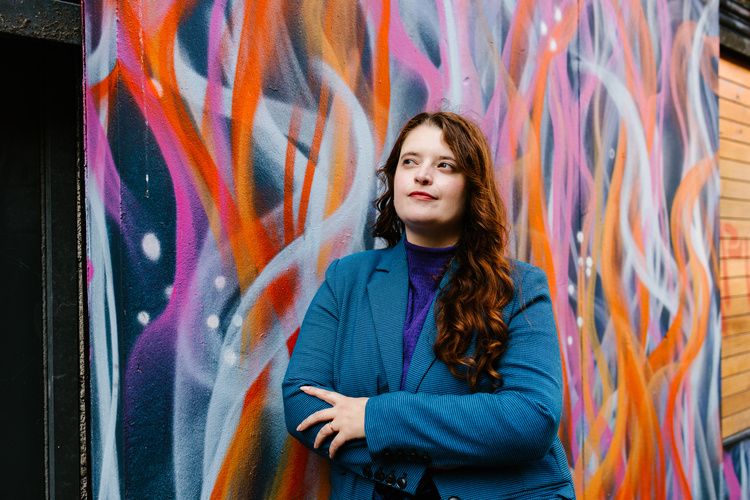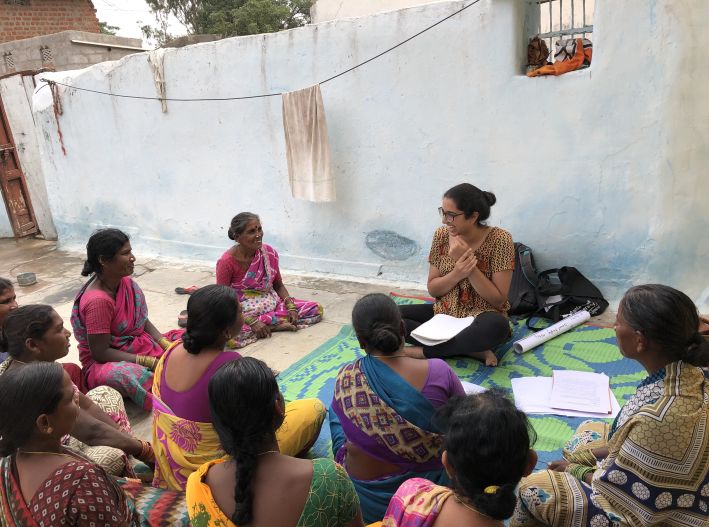Institute for European Studies
Information Session: Fulbright Opportunities for Graduate Students

March 5, 2025
4:45 pm
The Fulbright U.S. Student Program provides full funding for graduate and professional students conducting research in any field or teaching in more than 150 countries. Open to U.S. citizens only. The Fulbright-Hays Doctoral Dissertation Research Abroad program supports doctoral students conducting research in modern languages or area studies for six to 12 months.
Open to U.S. citizens and permanent residents of the United States. Travel to Western European countries is not eligible.
Register here. Can’t attend? Contact fulbright@einaudi.cornell.edu.
Additional Information
Program
Einaudi Center for International Studies
Reppy Institute for Peace and Conflict Studies
East Asia Program
Southeast Asia Program
Latin American and Caribbean Studies
Institute for African Development
Institute for European Studies
South Asia Program
Migrations Program
How Le Pen Used Populism to Fuel His Far-Right Agenda

Mabel Berezin, IES
IES director Mabel Berezin joined Here & Now to talk about the legacy of Jean-Marie Le Pen. The segment aired on January 7.
Additional Information
In Georgia Protests, Echoes of Ukraine’s Past Revolutions

Cristina Florea, IES
Cristina Florea, assistant professor of history, says “The government is trying to turn the country back to the Russian sphere of influence against the will of the people, who were moving toward the West, which felt almost inevitable.”
Additional Information
Cornell Summer Public Policy Program in Turin Info Session

February 10, 2025
4:00 pm
Martha Van Rensselaer Hall, 2250 Conference Room
Find out more about our summer public policy program in Turin. Nestled between the Alps and the Mediterranean in the magnificent Piedmont region of northern Italy, the city of Turin provides an inspiring background to explore the causes and consequences of population change, the debates unfolding in Europe around these issues, and the policies intended to address them. Population problems are central to societal change in numerous areas- inequality, immigration and diversity, race relations, family life, health and aging, and social welfare systems. This program explores the causes and consequences of population change, paying particular attention to how population processes interact with the social, economic, and political context in which they play out.
Additional Information
Program
Institute for European Studies
Cornell Summer Public Policy Program in Turin Info Session

November 18, 2025
4:45 pm
Martha Van Rensselaer Hall, 2250
Find out more about our summer public policy program in Turin. Nestled between the Alps and the Mediterranean in the magnificent Piedmont region of northern Italy, the city of Turin provides an inspiring background to explore the causes and consequences of population change, the debates unfolding in Europe around these issues, and the policies intended to address them. Population problems are central to societal change in numerous areas- inequality, immigration and diversity, race relations, family life, health and aging, and social welfare systems. This program explores the causes and consequences of population change, paying particular attention to how population processes interact with the social, economic, and political context in which they play out.
Additional Information
Program
Institute for European Studies
The Power of Civic Engagement in Peacebuilding

April 17, 2025
12:00 pm
Uris Hall, G08
From Local Voices to Global Impact: The Power of Civic Engagement in Peacebuilding
This lecture will examine the role of youth, women, and community-based movements in advancing peace and reconciliation, focusing on deliberative processes, alternative conflict resolution tools, and civic-led initiatives that have shaped global approaches to peacebuilding. Evidence demonstrates that peace agreements are 64 percent less likely to fail when civil society representatives participate. Participatory democracy in the form of civic forums, national dialogues, and community-based structures are at the center of several peace processes, including Northern Ireland, Colombia, and Guatemala.
The active participation of civic society in peacebuilding can lead to stronger decision-making as well as have a positive impact on the social fabric, fostering greater cooperation. What lessons can we learn? And how can greater inclusion levels from women, youth, and community-based movements advance the pillars of a positive peace?
About the Speaker
Emma DeSouza is a journalist, award-winning campaigner, peacebuilder, and civic innovation specialist. She is the Founder and Co-Facilitator of Northern Ireland’s Civic Initiative, Director of the Northern Ireland Emerging Leaders program with the National Committee on American Foreign Policy, and a consultant on peace processes and civic innovation. In 2020, DeSouza successfully delivered substantial changes to UK immigration law after a five-year court case to bring legislation in line with UK commitments to the Belfast/Good Friday Agreement.
She established the first All-island Women’s Forum to work collectively in addressing women, peace, and security issues, acting as Chair and Facilitator of the Forum from 2021-23 before founding the Civic Initiative in 2023, a new participatory democracy structure that brings together a wide range of civic society organizations to create a space for deliberative dialogues on advancing and supporting peace, reconciliation, and wellbeing. Emma is a freelance journalist writing for the Guardian, Irish Times, Business Post, Byline Times, Irish News, Euronews, and several other publications, to mark the 25th anniversary of Northern Ireland's peace process, she hosted a limited podcast series on the implementation of the Good Friday Agreement titled 'Lost in Implementation'.
Host:
Reppy Institute for Peace and Conflict Studies, part of the Mario Einaudi Center for International Studies
Additional Information
Program
Einaudi Center for International Studies
Reppy Institute for Peace and Conflict Studies
Institute for European Studies
Funding Research-Related Travel

Tips from the Graduate School
Grad students: The Einaudi Center offers a range of global funding opportunities to support you—from your first year to your final semester.
Additional Information
Information Session: Latin American Studies Undergraduate Minor

January 28, 2025
5:00 pm
The undergraduate minor in Latin American Studies spans across disciplines and allows you to explore the history, culture, government, politics, economy and languages of Latin America and the Caribbean. Qualifying courses can be found in many of the colleges.
Register here. Can’t attend? Contact lacs@cornell.edu.
Additional Information
Program
Einaudi Center for International Studies
East Asia Program
Southeast Asia Program
Latin American and Caribbean Studies
Institute for African Development
Institute for European Studies
Migrations Program
Information Session: Fulbright U.S. Student Program for Undergraduates

February 24, 2025
4:45 pm
The Fulbright U.S. Student Program supports U.S. citizens to study, conduct research in any field, or teach English in more than 150 countries. Students who wish to begin the program immediately after graduation are encouraged to start the process in their junior year. Recent graduates are welcome to apply through Cornell.
The Fulbright program at Cornell is administered by the Einaudi Center for International studies. Applicants are supported through all stages of the application and are encouraged to start early by contacting fulbright@einaudi.cornell.edu.
Register here. Can't attend? Contact fulbright@einaudi.cornell.edu.
Additional Information
Program
Einaudi Center for International Studies
Reppy Institute for Peace and Conflict Studies
East Asia Program
Southeast Asia Program
Latin American and Caribbean Studies
Institute for African Development
Institute for European Studies
South Asia Program
Migrations Program
Information Session: Global PhD Research Awards and Dissertation Proposal Development Program

February 20, 2025
5:00 pm
The Amit Bhatia ’01 Global PhD Research Awards fund international fieldwork to help Cornell students complete their dissertations. Through a generous gift from Amit Bhatia, this funding opportunity annually supports at least six PhD students who have passed the A exam. Recipients hold the title of Amit Bhatia ’01 Global PhD Research Scholars. All disciplines and research topics are welcome. The award provides $10,000 to be used by the end of the sixth PhD year for international travel, living expenses, and research expenses. Applications are due March 7, 2025.
The Einaudi Dissertation Proposal Development Program supports 12 students over the course of a year to participate in seminars, workshops, and mentoring sessions and receive up to $5,000 for summer research. Applicants’ research projects must focus on global issues, but the proposed research setting may be international or domestic. In addition to six weeks of summer research, the program includes community-building and mentoring events. Applications are due by March 2, 2025.
Register here. Can't attend? Contact programs@einaudi.cornell.edu.
Additional Information
Program
Einaudi Center for International Studies
Reppy Institute for Peace and Conflict Studies
East Asia Program
Southeast Asia Program
Latin American and Caribbean Studies
Institute for African Development
Institute for European Studies
South Asia Program
Migrations Program
